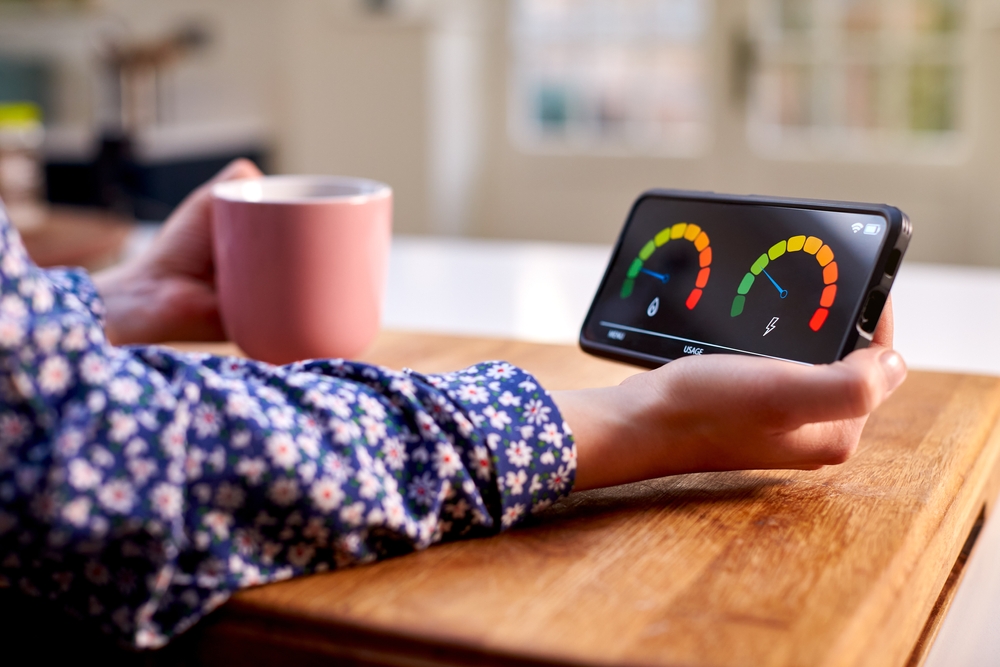 Back
Back
How To Get The Best From Your Smart Meter
On Monday, June 6, 2022 -
By the end of 2021, half of households in the UK had a smart meter installed and running.
But, aside from sending meter readings to your supplier so you don’t have to, how else can they help? We’ve gathered our tips to help you get the most from your smart meter.
What do smart meters do?
The main purpose of a smart meter is to automate the process of sending meter readings to your energy supplier. Your supplier can then bill you accurately - and only for the energy you’ve used, rather than relying on estimates and readings you provide.
Smart meters also come with in-home display units that show you how much energy you’re using at any given moment, as well as your usage over time.
Do smart meters work with prepayment meters, too?
Yes, they do! Smart meters can be set up both for people who pay by direct debit and those with prepayment meters. If you have a prepayment meter (also known as a pay-as-you-go meter), your display will show you both how much energy you’re using and how much credit you have left before you’ll need to top up again.
It can help you predict how often you’ll need to top up and how much you’ll need to spend. This can be handy when you’re trying to work out your budget.
How to get the most from your smart meter
Smart meters could also be used to help you reduce your energy bills a bit too! Here are our top money-saving tips:
Check your display
The display screen that comes with your smart meter gives you an easy way to check how much energy you’re using without having to brave the basement, garage, or outdoors. If your display unit is plugged in somewhere out of the way, or worse, is still in its box, then it’s not being useful. Ideally, your display will be plugged in and placed somewhere you can glance at it as you go about your day. Then, you’ll be able to reap the benefits.
Track your usage
Your smart meter’s display unit shows how much electricity you’re using in almost real-time, and how much gas you’re using every 30 minutes. Have you just put the kettle on, or set a load of laundry running? Your display will show you everything you do and how much it costs.
The display screen also helps you keep a running total of how much money you’re spending on energy per day, week and month. This can help you budget better, as you’ll know exactly what you’ve spent at any given time. So, the next time you need to top up or you get a bill, it won’t be a surprise.
Spot trends and make a plan
Comparing your energy usage over time using your smart meter can help you spot trends in your usage. This may then give you ideas on how you can reduce the amount of electricity and gas you use. 86% of people with smart meters say they’ve changed how they do things around the house as a result of seeing their energy usage laid bare.
For example, if you notice that the amount of electricity you use is much higher on days you run the washing machine, you may decide to only do a wash when you have a full load to put on, or only use your machine’s eco settings.
Measure the impact of your efforts
Because you can use your display to track your usage and compare it over time, you’ll be able to see quite quickly what effect your energy-saving tactics are having, and if it’s worth sticking with them. For example, if something is easy to build into your daily routine and reduces your energy usage significantly, then keeping it going is a no-brainer! But, something that’s harder to stick to and seems to only save you a few pennies may not be worth the effort.
Do smart meters save you money?
Simply having a smart meter installed won’t usually save you money. In most cases, the savings you could make come from the changes you make around the house to use less energy.
That said, some people notice that switching from a billing system based on estimates to one based on actual usage means they save up to £20 a month. This isn’t the case for everyone, though.
Being more aware of how much energy you’re using and when can help you to work out if you’d benefit from switching to a different tariff, too.
Here are a few extra money-saving ideas you might want to try to reduce your energy usage:
- hanging laundry out to dry instead of using the tumble dryer on nice days
- turning electronics and appliances off at the mains instead of leaving them on standby
- only boiling the water you need in the kettle, instead of filling it to the brim every time
- swapping time spent on games consoles and other high-energy electronics for “off-grid” entertainment like board games or reading a book
- re-arranging your rooms so no furniture is blocking radiators and heat can circulate more effectively
- using a slow cooker to batch cook meals so you spend less time using energy-hungry appliances like the oven
Each of these changes may only save you a small amount, but together they could make a sizeable difference to your energy bills!
Looking for more energy-saving ideas? Try out some of these unusual tips to shave a few pounds off your bills!










